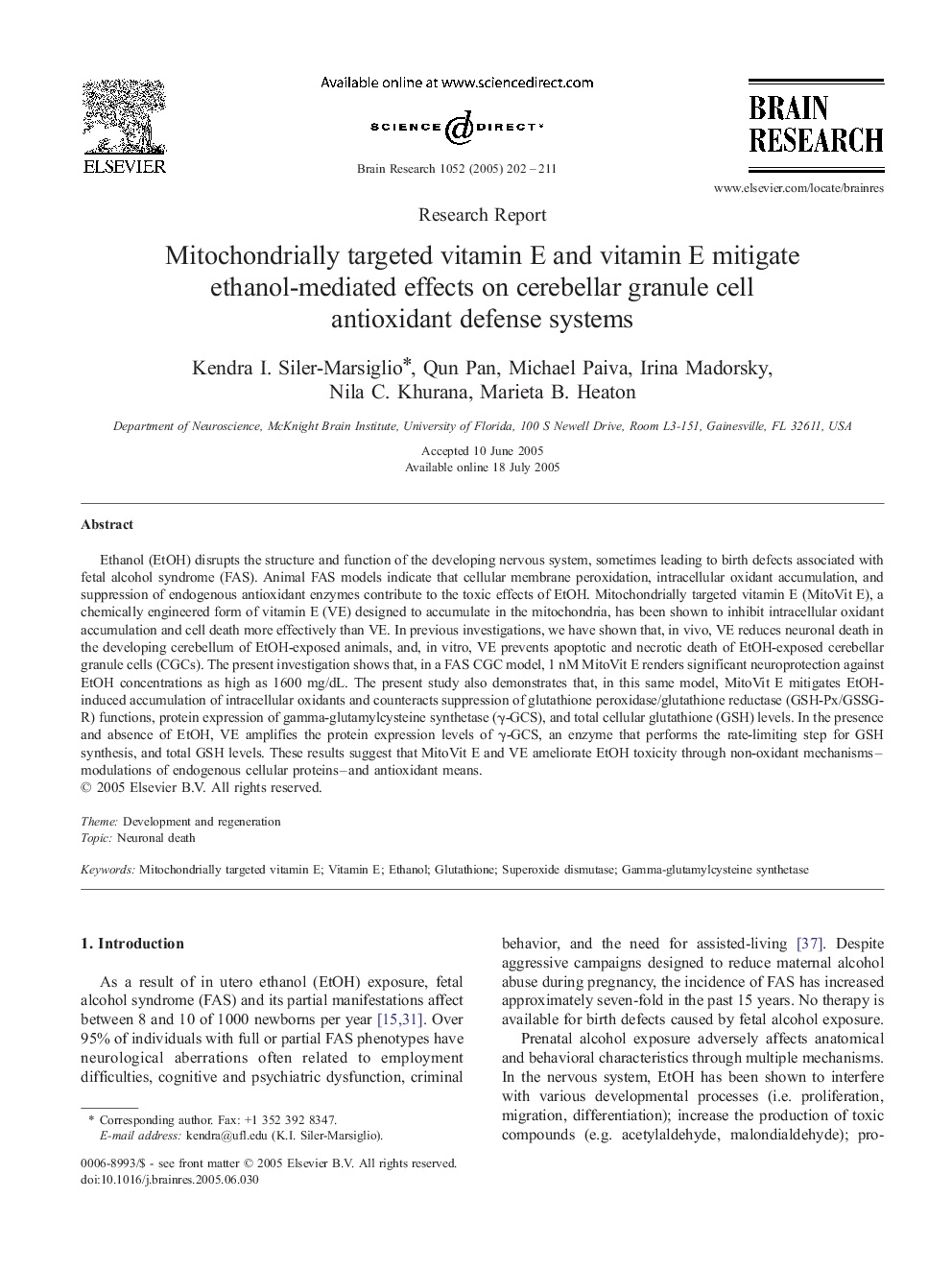| Article ID | Journal | Published Year | Pages | File Type |
|---|---|---|---|---|
| 9415893 | Brain Research | 2005 | 10 Pages |
Abstract
Ethanol (EtOH) disrupts the structure and function of the developing nervous system, sometimes leading to birth defects associated with fetal alcohol syndrome (FAS). Animal FAS models indicate that cellular membrane peroxidation, intracellular oxidant accumulation, and suppression of endogenous antioxidant enzymes contribute to the toxic effects of EtOH. Mitochondrially targeted vitamin E (MitoVit E), a chemically engineered form of vitamin E (VE) designed to accumulate in the mitochondria, has been shown to inhibit intracellular oxidant accumulation and cell death more effectively than VE. In previous investigations, we have shown that, in vivo, VE reduces neuronal death in the developing cerebellum of EtOH-exposed animals, and, in vitro, VE prevents apoptotic and necrotic death of EtOH-exposed cerebellar granule cells (CGCs). The present investigation shows that, in a FAS CGC model, 1 nM MitoVit E renders significant neuroprotection against EtOH concentrations as high as 1600 mg/dL. The present study also demonstrates that, in this same model, MitoVit E mitigates EtOH-induced accumulation of intracellular oxidants and counteracts suppression of glutathione peroxidase/glutathione reductase (GSH-Px/GSSG-R) functions, protein expression of gamma-glutamylcysteine synthetase (γ-GCS), and total cellular glutathione (GSH) levels. In the presence and absence of EtOH, VE amplifies the protein expression levels of γ-GCS, an enzyme that performs the rate-limiting step for GSH synthesis, and total GSH levels. These results suggest that MitoVit E and VE ameliorate EtOH toxicity through non-oxidant mechanisms-modulations of endogenous cellular proteins-and antioxidant means.
Keywords
Related Topics
Life Sciences
Neuroscience
Neuroscience (General)
Authors
Kendra I. Siler-Marsiglio, Qun Pan, Michael Paiva, Irina Madorsky, Nila C. Khurana, Marieta B. Heaton,
